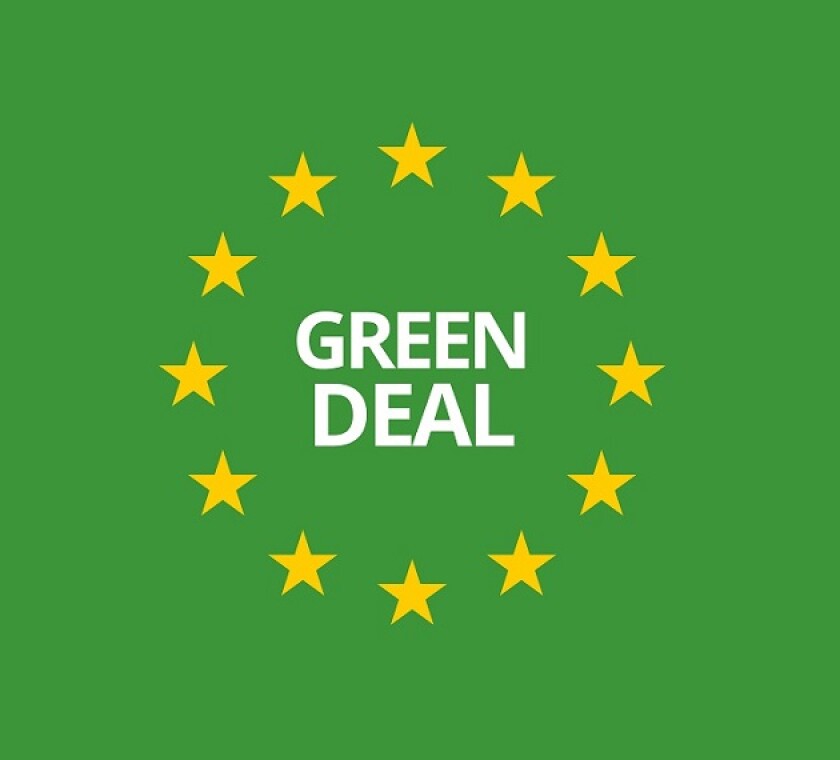One of the first actions of President Ursula Von der Leyen’s European Commission when she took office in December 2019 was to propose a ‘Green Deal’ for the European Union (EU), one which strives to match the EU’s ambition in climate change mitigation with industrial and social innovation. The EU wants to work towards a fairer, cleaner and more sustainable society for future generations.
Of course, our world has changed dramatically since December 2019 because of the devastating coronavirus pandemic. However, just look at how quickly the EU was able to react once the daunting challenges facing us became known.
The Commission put forward an unprecedented financial recovery programme, called Next Generation EU, worth €750 billion ($882 billion) and a revamped EU budget worth €1.1 trillion to deal with one of the most crippling health and economic crises of our time. The plan should kick in early next year once member states and the European Parliament give their final approval. The Commission developed a strategy to support the development, manufacturing and deployment of vaccines against coronavirus, and made deals with global pharmaceutical players to ensure access to them. In the taxation field, all member states came together at EU level to waive taxes and duties on the life-saving and preventative equipment needed to fight the global pandemic. Where there is a will, it seems, there is still always a way.
When it comes to environmental commitments, expectations run just as high. Rest assured, the EU’s ambition has not dimmed. If anything, the Commission’s resolve has strengthened.
In her first State of the Union address in September 2020, Von der Leyen revealed the Commission’s intention to increase the EU’s 2030 emissions reduction target from 40% to at least 55%, putting the EU on track for climate neutrality by 2050 and for meeting its Paris Agreement obligations. A better and cleaner future awaits us if we pull together and work hard to achieve it. EU taxation and customs policy will strive to reflect these values in all of its dimensions.
The European Green Deal is more than a climate strategy – it also forms part of the new growth strategy for the EU. However, reductions in greenhouse gas emissions will need significant effort and investment in a considerable number of areas. The Commission is setting out plans to build and sustain a greener future, whether in the energy, industry, farming, food, or biodiversity domains. Since the Green Deal’s inception, the EC has begun the process of putting our political commitment to climate neutrality into law. Environmental taxation forms a positive and fundamental part of that strategy.
Environmental taxes represented 6% of total tax revenue in EU member states overall in 2018 and deliver on many fronts. They are growth-friendly and boost competitiveness since they encourage investment in clean, innovative processes. They spur more sustainable and responsible behaviour, through the ‘polluter pays’ principle. They can also help offset the costs of the environmental transition, helping to shift the burden away from taxing labour. With this in mind, the Commission wants to update the tired and obsolete minimum rates in the area of energy taxation, while promoting cleaner, more sustainable industry both in and outside the EU. Central to our work in this area are two important initiatives, which should help us to put in place the most forward-looking green taxation regime in the world.
First, and as part of a wider review of EU energy standards, we will be asking member states to refresh the EU’s outdated energy taxation regime, which sets out minimum excise duty levels in the EU for heating, transport and electricity fuels. Last updated in 2003, this legislation is woefully out of touch with EU environmental protection rulebooks such as the Emission Trading System and the Energy Efficiency Directive, and its revision should better reflect the EU’s climate ambitions.
This includes revising minimum rates for such fuels and re-thinking tax exemptions, such as those afforded to kerosene used in aviation and in maritime transport. We want to reduce the implicit subsidies for fossil fuels and certain economic sectors. The aim is to re-shape energy taxation in a way that encourages consumers and businesses to behave in a more environmentally friendly and climate conscious way.
Second, and as put succinctly by President Von der Leyen herself in September, carbon must have its price because nature cannot pay the price anymore. So, in parallel, and to support the EU’s increased global climate ambitions, a carbon border adjustment mechanism for certain sectors of production would help to reduce the risk of carbon leakage. It would also send an important signal that we expect nothing less from our trade partners than the ambitious emissions standards being pursued within the European Union. Indeed, if our international partners followed the example of the EU as set out by the Commission, we could together keep global warming below 1.5 degrees Celsius.
At the same time, import prices would reflect carbon content more accurately, preventing polluting products from flooding the EU single market and ensuring that production relocated to countries with less ambitious climate policies does not undermine the EU’s green objectives. Several options remain open to us in terms of policy direction and scope of the instrument. This project will also require extensive reflection and collaboration with EU customs authorities.
Of course, we will ensure that any solution is fully in line with World Trade Organisation rules. Recent reflections have also signalled that a border adjustment mechanism could make a meaningful contribution to the EU’s overall budget. In this way, the new system may contribute directly to both our climate policies and our common recovery.
Preliminary assessments are ongoing on these two flagship priorities of our taxation agenda and you can expect Commission proposals by summer 2021.
Recent experience has clearly shown that bold and decisive action is still possible, even in what can feel sometimes like a divided world. The EU stands ready to start its journey towards an environmental and energy taxation playbook that promotes solidarity and inspires the rest of the world.











